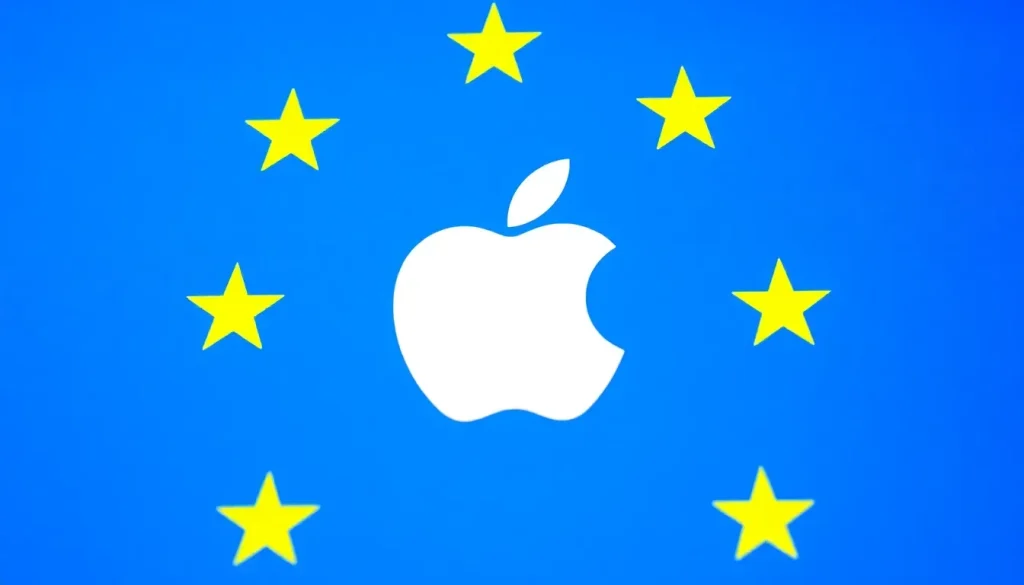Apple claims EU Digital Markets Act favors big tech over customers

As the European Union (EU) examines the impact of its Digital Markets Act (DMA), tech giants like Apple are stepping forward with robust criticisms. This scrutiny highlights an ongoing tension between regulatory frameworks intended to foster competition and the actual implications for both companies and consumers. Apple’s recent objections to the DMA reveal broader concerns about market dynamics and user experiences.
Understanding the Digital Markets Act and its implications
The Digital Markets Act is a groundbreaking legislation designed by the EU to regulate the activities of major tech companies, often referred to as "gatekeepers." This law aims to ensure fair competition in the digital market by imposing stringent requirements on these companies to maintain consumer welfare.
Under the DMA, companies that exceed a specific user threshold within the EU are categorized as gatekeepers. This includes notable names such as:
- Alphabet (Google)
- Amazon
- Apple
- ByteDance (TikTok)
- Meta (Facebook)
- Microsoft
These firms face scrutiny regarding their practices, particularly concerning how they impact smaller competitors and consumer choice. The legislation emerged from EU concerns that dominant companies might engage in anti-competitive behavior, harming both the market and the users.
Apple's strong objections to the DMA
Apple's response to the DMA review has been particularly vocal and pointed. The company argues that the DMA, rather than promoting competition, could inadvertently disadvantage consumers. According to Apple, the stringent requirements may stifle innovation and limit feature availability. They assert:
“Regulators claimed the DMA would promote competition and give European consumers more choices. The law is not living up to those promises. In fact, it's having some of the opposite effects.”
Apple’s stance is clear: the DMA hampers its ability to launch new features in the EU. For instance, the company claims that the law prevents it from introducing innovative functionalities like iPhone Mirroring and advanced AirPods Pro features in the region until they can be shared with competitors. This limitation has notable implications for European consumers, who may miss out on cutting-edge technology.
The burden of compliance
Apple highlights that the requirements of the DMA impose an unreasonable burden on its engineering teams. The company argues that it traditionally rolls out new features for its products before making them available to third-party developers. The DMA, however, demands that all features be available for competitors simultaneously, which Apple deems an unsustainable expectation.
This scenario raises questions about how such regulations affect innovation in tech. Apple posits that:
- Features must be available immediately for competitors, limiting the time for refinement.
- Compliance with these demands could divert resources from developing new technologies.
- The burden of compliance is unique to Apple compared to other gatekeeper companies.
The consumer advocacy narrative
Proponents of the DMA argue that the law is fundamentally designed to protect consumers by enhancing competition and providing more choices. However, Apple disputes this narrative, suggesting that the DMA primarily benefits existing large players rather than fostering a genuinely competitive environment.
For example, fining Apple Music for alleged monopoly practices has been cast as a measure to protect consumers. Yet, Apple contends that its music service is far from monopolistic when compared to Spotify, a market leader. Apple claims such fines serve to bolster competitors rather than enhance consumer welfare.
Security and privacy concerns
One of the most pressing aspects of the DMA, according to Apple, is its potential to compromise user security and privacy. The company asserts that compliance with the DMA requires sharing sensitive user data with competitors, which could expose users to increased risks.
Apple specifically mentions data requests that could allow companies like Facebook to bypass its privacy protections. These include:
- Access to complete content of user notifications.
- Full history of Wi-Fi networks a user has joined.
Such data sharing could undermine the very privacy standards Apple has built its brand upon, raising alarms about the implications of the DMA on user security.
Future implications of the DMA for Apple
The ongoing dialogue surrounding the DMA is set against a backdrop of significant regulatory scrutiny. Apple filed its objections to the EU's review of the DMA just before the deadline, signaling its eagerness to influence the regulatory landscape. The European Commission will review all submissions before presenting a report to the European Parliament.
The EU has committed to delivering a final report by May 2026, followed by subsequent reviews every three years. Apple is unlikely to see the DMA repealed entirely but may push for clearer guidelines and considerations regarding user privacy in future iterations of the law.
Apple’s position in the larger tech landscape
Apple’s criticisms of the DMA reflect broader concerns about the role of regulation in the technology sector. While regulatory bodies aim to protect consumers, the implications of such laws can be complex. Apple argues that:
- Current implementations of the DMA may inadvertently harm consumers.
- Regulatory frameworks should not ignore the significant investments companies make in technology and innovation.
- Greater emphasis should be placed on balancing competition with consumer protection.
As the tech landscape continues to evolve, the relationship between regulation, competition, and consumer welfare will require ongoing scrutiny. Apple's advocacy for clarifying the DMA's implications serves as a critical reminder of the need for balanced legislation that genuinely serves the interests of consumers.
In the midst of these developments, tech enthusiasts and industry observers are keenly watching how the EU navigates these challenges. The outcome could establish significant precedents for how major tech companies operate within the European market. For more on this topic, you can watch a relevant discussion here:
As this regulatory landscape continues to unfold, both consumers and tech companies will be affected by the decisions made today. The balance between fostering competition and ensuring consumer protection remains a challenging tightrope for regulators, and the ongoing dialogue between major players like Apple and European authorities will be central to shaping the future of digital markets.




Leave a Reply